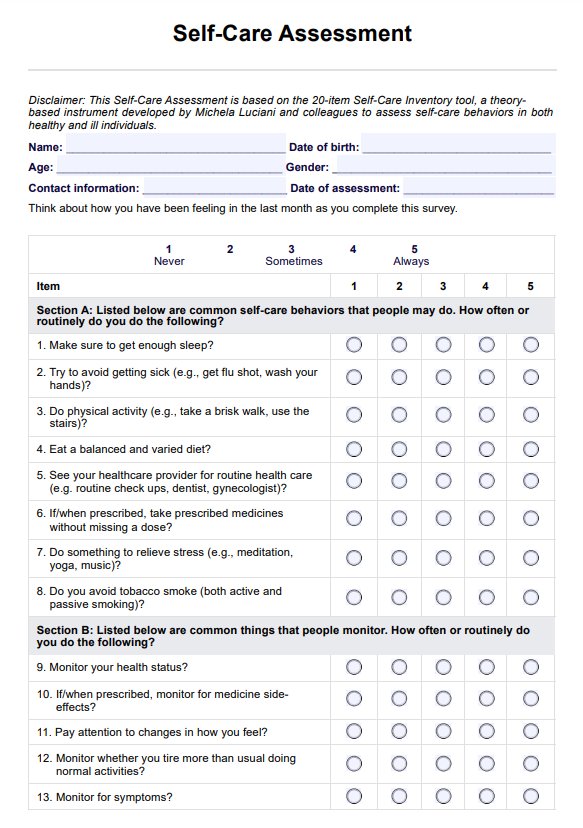A self-care assessment is a tool used by healthcare providers to evaluate an individual’s engagement in behaviors that promote physical, emotional, and mental well-being. It helps identify areas needing improvement to develop personalized self-care plans.

Self-Care Assessment
Access Carepatron's free Self-Care Assessment PDF to support clinical evaluations. Help clients improve self-care practices with this practical, evidence-based resource.
Self-Care Assessment Template
Commonly asked questions
The 5 C's of self-care are Compassion, Commitment, Consistency, Connection, and Care, which guide individuals in maintaining regular self-care practices to enhance overall well-being. These principles encourage balanced habits that support physical, mental, and emotional health.
The Self-Care Inventory (SCI) is a widely used tool that measures self-care behaviors across three key areas: self-care maintenance, monitoring, and management. It provides healthcare professionals with valuable data to assess and improve patient self-care practices.
EHR and practice management software
Get started for free
*No credit card required
Free
$0/usd
Unlimited clients
Telehealth
1GB of storage
Client portal text
Automated billing and online payments











